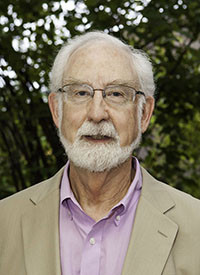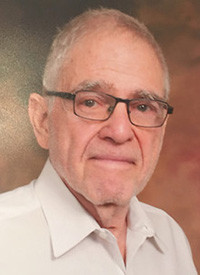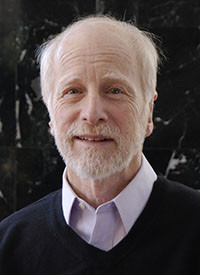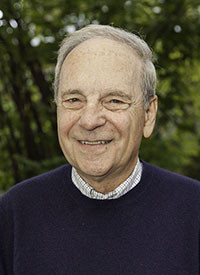Faculty
Celebrating our Retiring Faculty
Please join the Psychology Department in recognizing the distinguished contributions and service of our faculty who have retired during the 2019-2020 academic year. These faculty members leave significant legacies in our undergraduate and graduate programs and we wish them well in their retirements. If you would like to send a memory or message of gratitude and congratulations along, they can be sent to the Assistant to the Psychology Chair. Donations in honor of our faculty can be made here.
 |
| Mike Beecher |
Professor Michael Beecher retires from the Department of Psychology at the University of Washington after 49 years as a professor. Mike joined the Department of Psychology in 1978 as an Associate Professor after coming from Eastern Michigan University where he had been an Assistant and Associate Professor since 1971. He also holds an adjunct appointment with the Department of Biology where he has been a member since 1981. Mike served as Psychology Department Chair from 1993 to 2002 and has been on many department committees. In addition to service at UW, Mike served as the President (2002) and Program Officer (2011-2015) of the Animal Behavior Society and as Program Director (2006-2007) of Behavioral Systems in the Division of Integrative Organismal Systems at the National Science Foundation. He was editor of Animal Behavior (1985-1988, 1997-present) and the Proceedings of the Royal Society of London, B (2010-2014). During his academic career at UW, Mike has taught many undergraduate and graduate courses, including Animal Behavior, Animal Communication, Mechanisms of Animal Behavior, Sociobiology, Evolutionary Psychology and the Animal Mind. He served as the primary advisor for 15 graduate students, and mentored many more.
Beecher’s research addresses the function of song and song learning in birds, with a focus on the song sparrow (Melospiza melodia). Mike conducted the first long-term study of how juvenile birds learn songs in their natural environment. Previous research in this area studied song learning in birds raised in captivity in the lab. To do their studies, Mike and his students and postdocs had to individually color-band every baby song sparrow hatched in nests in Discovery Park in Seattle, and they then followed and recorded songs from those young birds as they left the nest and interacted with adult male sparrows. Their research showed the critical importance of social interactions between juvenile and adult birds in determining what and when birds learn to sing something that had not been appreciated from decades of laboratory studies. This uniquely ambitious research program has changed our view of how birds learn to sing, and set the model for research on this topic by a new generation of investigators. Mike has also performed a number of collaborative integrative studies that examined the role of neural song centers for song production and perception with Professor Eliot Brenowitz.
Throughout his career at UW, Mike has played a central role as the leader of the Animal Behavior area, and in the Department of Psychology as a whole. He showed that animal research is an integral part of Psychology, and that animal behavior serves as a bridge between human research and behavioral neuroscience. Mike's impact on our department will continue to be felt long after he retires from the faculty.
 |
| Bob Kohlenberg |
Professor Robert Kohlenberg has served the University of Washington, the Department of Psychology, and the Clinical Psychology program for more than a half-century. Though retiring in 2020, his contributions as a clinical scientist and mentor will continue as he assumes emeritus status in the Department and continues his work. Bob joined the UW clinical program in 1968 and was a key contributor to the transformation of our program into the top echelon of clinical programs. He initiated and supported a number of training innovations that increased student productivity and morale. From 1997 to 2004, a period during which the program ascended to a top national ranking, Bob served the program as Director of Clinical Training. He also contributed at the local and state levels, receiving the Distinguished Psychologist Award from the Washington State psychological Association in 1999.
Bob’s theoretical orientation was strongly behavioristic and had a strong Skinnerian influence. He was (and remains) committed to applied behavior analysis, the application of operant principles to changing behavior. Over the years, he has successfully applied operant principles to to a wide variety of problems, including depression, persistent vomiting, and self-destructive behavior in clinical settings. In the late 1980s, Bob’s attention turned to the enterprise of psychotherapy. Considerable empirical evidence showed that the client-therapist relationship is an essential factor in positive therapeutic change. Based on the principle that client behaviors that occur in their “real world” interpersonal relationships will, given a therapeutic relationship of sufficiently high quality, occur in the therapeutic relationship as well, Bob and his spouse, Mavis Tsai, developed a new treatment approach that focused on behavioral exchanges within therapy. The publication of their seminal 1991 book, Functional Analytic Psychotherapy, heralded a major new phase in Bob’s career trajectory. In FAP, a functional analytic operant strategy is used to decrease maladaptive behaviors in therapy within a collaborative relationship through the use of compassion, encouragement, and positive reinforcement and to increase incompatible desired behaviors as defined by the client’s own treatment goals.
Bob has been a productive scholar over the years, with over 100 journal articles, chapters, and books to his credit. He is a brilliant instructor whose course, “Behavior Change” has been a curricular component since his arrival. His kindly and gentle nature has attracted many students who are grateful for his generous mentoring, and he has an enviable number of graduated Ph.D.s. Bob has been a true blessing to students and faculty, and his retirement leaves a gap in our program that will not easily be filled.
 |
| Tony Greenwald |
Professor Anthony Greenwald retires from the Department of Psychology at the University of Washington after 34 years as a professor. Tony joined the Department of Psychology in 1986 after 21 years at the Ohio State University where he had been an Assistant, Associate, and Full Professor since 1965. He also holds an appointment as the Adjunct Professor of Marketing and International Business, an appointment he has had since 2005.
Tony has received many distinguished awards, including the Golden Goose Award from the American Association for the Advancement of Science (2018), the Distinguished Scientific Contributions Award from the American Psychological Association (2017), the Kurt Lewin Award from the Society for the Scientific Study of Social Issues (2016), the William James Lifetime Achievement Award from the Association for Psychological Science (2013), the Distinguished Scientist Award from the Society of Experimental Social Psychology (2006), the Thomas M. Ostrom Award from the Person Memory Interest Group (2001), the Research Scientist Award from the National Institute of Mental Health (1998-2004), and the Donald T. Campbell Award from the Society of Personality and Social Psychology (1994). Tony is also an Elected Fellow of the American Association for the Advancement of Science, the Association for Psychological Science, and the American Psychological Association Divisions 1 (General)/3 (Experimental)/8 (Social & Personality)/9 (Social Issues)/23 (Consumer). Several of his PhD students went on to conduct groundbreaking research, including Mahzarin Banaji (Harvard), John Cacioppo (U Chicago), and Anthony Pratkanis (UC Santa Cruz). Tony served as chair of the Society of Experimental Social Psychology (1985-1986) and Editor of the Journal of Personality and Social Psychology (1977-1979). Tony was also on the Oprah show in 2007!
The phenomenon of implicit bias that Tony’s research amply and rigorously demonstrated has become an integral part of the public discourse on social disparities. The number of articles published in the US referring to implicit bias has increased at least 100-fold in the last decade alone. Few people think they are racist or sexist, yet when they take the Implicit Association Test that Tony and colleagues devised, they experience that they respond differently to different groups. Even after becoming aware of this, most people cannot control it, and can see it could result in unintended disparities and discriminatory consequences. The fact that this highly replicable phenomenon coexists with people's deeply and sincerely held conviction that they are not biased has changed how we now think about prejudice.
The profound contributions Tony has made through his research on implicit biases reflect his distinctive approach to psychological science. Rather than first developing theories and then testing them, which is a path followed by many, Tony's focus is on discovering previously unknown and consequential behavioral phenomena by inventing the methods for finding them. An excellent example is a paper he published in Science, describing a new method that can "reliably demonstrate unconscious activation of meaning by subliminal (visually masked) word." Tony’s contribution to psychological science reminds us of how the invention of telescopes, microscopes, and particle accelerators fundamentally changed astronomy, biology and physics. Tony articulated his approach almost two decades ago in a whimsically titled chapter referring to Monty Python's "Dead Parrot" sketch of John Cleese's ultimately futile effort to prove that the pet parrot he just purchased was not merely asleep or stunned. In this chapter, he argued that while theory refutation is the foundation of a common conception of scientific progress, in actuality it is nearly impossible. Tony followed this up in a paper with a table showing that after decades of research, nearly all prominent theory competitions in psychology have yet to be resolved, and that a vast majority of Nobel prizes are given to scientific methods for discovery.
Tony’s rather unorthodox focus on methods to discover new and important phenomena proved foresightful, in light of how instrumental his Implicit Association Test has been for establishing implicit bias as a reliably observed phenomenon. But that is not the first time his unorthodox approach turned out to foretell important developments in psychological science. For example, in his 1975 Psychological Bulletin paper Tony anticipated the "replication crisis" four decades later, warning that among the papers that journals publish, "a high proportion will erroneously reject the null hypothesis," resulting in false positives. In his 1986 Psychological Review paper, Tony documented his relentless effort to replicate the sleeper effect, which had been firmly enshrined in social psychology textbooks. His eventual discovery, after 7 years and 16 experiments, of the key condition necessary for the effect to occur not only led to a deeper understanding of the psychological processes underlying it, but it also to an important reconceptualization of social psychology research. In doing so, Tony turned on its head Bill McGuire's observation that the prevailing approach to research was less a test of the original hypothesis but more a test of the researcher's persistence and ingenuity for producing the conditions that demonstrate the predicted result. Rather than finding this a reason to be discouraged, Tony articulated new approaches to research that embraces it, which he called the Method of Condition-Seeking, and Design Approach. In these approaches, the question is not whether or not a phenomenon occurs, but rather, analyzing just what it takes to make it occur, and using this analysis as the basis for deeper insights into human behavior.
The insights Tony has provided throughout his long career will continue to shape psychological science, and may well revolutionize how future researchers approach research of human behavior. Most importantly, however, Tony has applied his relentless pursuit of rigorous and innovative methods to understand and uncover biases. We are reminded of this every time we pass his office. Right above his name next to his office door is an old newspaper clipping about Lyndon Johnson's commitment to affirmative action. In the middle of the office door is a fortune cookie message, the version of which famously corrected by Tony is, "There isn't anything which that cannot be improved."
 |
| Ron Smith |
Professor Ronald Smith has served the Clinical Psychology Program at the University of Washington since 1969. From the very start, to this day, he has been recognized and appreciated for his congenial and compassionate disposition. Although he is now retiring, his major contributions to our field and our department will continue in his role as an Emeritus Professor.
Ron received a degree in psychology from Marquette University in 1963, and after an internship at the Neuropsychiatric Institute and the Center for the Health Sciences at UCLA went on to receive a Ph.D. in clinical psychology from Southern Illinois University in 1968. In 1969, he joined the University of Washington and had a central role shaping its clinical psychology program. From 1981 to 1985, and again from 2004 to 2019, Ron served as Director of Clinical Training. Ron also served as the Area Head of the Social/Personality program from 1990 to 1993. He served as president of the Association for the Advancement of Applied Sport Psychology from 1987 to 1988, was elected as its Fellow, as well as becoming a Fellow of the American Psychological Association. Ron is a recipient of the Tyee Professor Award and the Davida Y. Teller Distinguished Faculty Award for Graduate Student Mentoring.
Ron's research, teaching, and administration, reflected the deeply caring and compassionate person that he is. He developed, refined, and evaluated a variety of cognitive-behavioral techniques to help people cope with stress, culminating in a psycho-educational program called the Cognitive Affective Stress Management Training (C-ASMT). It incorporated the "induced affect" technique he pioneered that that included relaxation responses and stress-reducing self-generated statements- all integrated in the breathing cycle. For example, while inhaling, a client may say to herself, "I may not like this, but I can deal with it..." and then, while exhaling, say "so... relax," triggering a relaxation response she had practiced earlier until it became automatic. In recent years, Ron further enhanced this by combining it with on-line daily diaries. By accessing the entries the clients had made in the previous week, trainers were able to help them recall the most stressful experience they encountered and recorded. With the therapist-trainer's guidance, clients immerse themselves in a vivid re-living of the stressful situation until it becomes unbearable, at which point the therapist-trainer prompts them to use the integrated coping response linked to inhaling and exhaling. This provided clients with a second (and third, and fourth) chance to “re-do” how they coped with the stressful experience, but this time with a different ending than the first time, building skills and confidence to deal with similar situations in the future.
In another line of research, with his longtime collaborator Frank Smoll, Ron has developed a training program for coaches of youth sports. Systematic observations of over 80,000 behaviors of about 70 coaches and nearly 1,000 children led to important discoveries of how young athletes' well-being was affected by their coaches' behavior, such as criticizing mistakes when losing a game. These behaviors had detrimental effects, particularly among those with low self-esteem. These findings led to the development of the Mastery Approach to Coaching, which teaches coaches how to create an environment in which the focus is on effort and commitment to getting better, rather than game outcomes. It defines skill improvement and personal growth as success, and minimizes pressures to win. The mastery motivational climate it created was found to reduce fear of failure and general anxiety, increase liking of teammates and dramatically reduce dropping out. Remarkably, the healthy achievement motivation it fostered generalized to academic activities as well.
Ron's research has crossed disciplinary boundaries more than most. His papers appeared in flagship journals in social and personality psychology, sport psychology, community psychology, as well as clinical psychology. His body of work makes it abundantly clear that the research he conducted was not simply to address questions that any particular discipline happens to consider important. Rather, his research reflects his deep commitment as a clinical psychologist to make tangible differences in each individual's life, and he has combined the best of the conceptual and methodological tools from multiple disciplines. Ron's work in sport psychology and his commitment to the well-being of children participating in youth sports led to crossing artificial disciplinary boundaries. This, of course, is the direction that psychological science is taking, and Ron's career set an example for many to follow.
We are forever grateful to Ron for inspiring us with his focus that never wavered from the ultimate goals of enhancing the wellbeing of his clients, youth sport and research participants, students, and colleagues through his research, teaching, and administration always driven by his deep compassion for others.
Faculty Spotlight on Nicole McNichols
 |
| Nicole McNichols |
Nicole K. McNichols is a Senior Lecturer in the Department of Psychology at the University of Washington in Seattle, where she also received her Ph.D. in Social Psychology in 2009. Dr. McNichols teaches the largest and most popular undergraduate course at UW, PSYCH 210 – The Diversity of Human Sexuality. In her class, she uses a sex-positive approach on topics including anatomy, sex and gender, sexual behavior, and sexual relationships and she recently wrote her own textbook for the course titled A Critical Introduction to Human Sexuality that provides a modern, comprehensive and research-based exploration of human sexuality that incorporates real life perspectives on contemporary issues. The enrollment for PSYCH 210 is consistently at 720 students, the maximum capacity of Kane Hall 130 (the largest classroom on campus). She has taught this undergraduate course every quarter for the last five years with over two thousand enrolled students each year! Her current research focuses on teaching methods designed for human sexuality and in 2019 she delivered a Ted Talk entitled "Students on Top: A Guide to 21st Century Sex Education." Dr. McNichols has been a proponent of adopting and developing active learning techniques and using technology to bring scientific subject matter to life in the classroom. Dr. McNichols is an active member of a variety of societies for teaching human sexuality and is a three-time Distinguished Teaching Award Nominee.